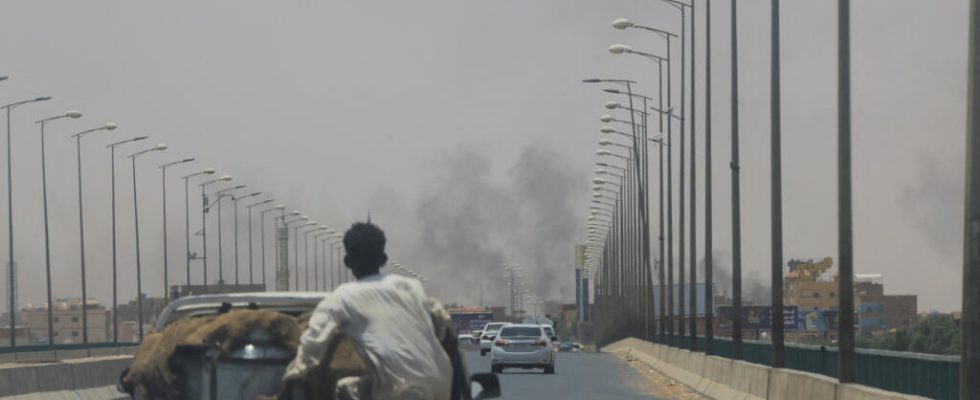More than 20 civilians were killed on Sunday evening, November 5, when shells fell on a market in Omdurman, a suburb near Khartoum, the capital of Sudan, an NGO announced.
2 mins
According to a statement from the Pro-Democracy Lawyers Committee which documents civilian casualties and human rights violations in the conflict, “ during intense exchanges of fire between the belligerents, shells fell on a market in Omdurman “. “ More than 20 civilians were killed and others injured “, indicated this press release received by AFP.
The day before, at least 15 civilians were killed by “ shells falling on their houses » in Khartoum, a medical source indicated.
Started on April 15, the war between the army led by General Abdel Fattah al-Burhan and the Rapid Support Forces (FSR, paramilitary) of General Mohamed Hamdane Daglo, left more than 9,000 dead, according to an estimate by the NGO Armed Conflict Location & Event Data Project (Acled), considered largely underestimated.
Incapable of gaining a decisive advantage since the start of the war, both camps are stalling, but neither intends to make any concessions at the negotiating table. Talks between the belligerents took place in the Saudi city of Jeddah. They aimed “ to facilitate the delivery of humanitarian aid, establish ceasefires and other confidence-building measures, and move toward a permanent cessation of hostilities », According to Riyadh.
Previous attempts at mediation resulted in only brief truces, all of which were systematically violated. Generals al-Burhan and Daglo opted instead for a war of attrition, hoping to extract greater concessions at the negotiating table, experts said.
The conflict has also displaced more than 6 million people. 1.2 million of them joined border countries. According to the UN, women and girls are kidnapped into slavery every day in Darfur. The United Nations High Commissioner for Refugees calls on the international community to finance growing humanitarian needs.
The United Nations High Commissioner for Refugees’ humanitarian response in Sudan is only about a third funded. Despite the urgency of the crisis, the level of funding has really fallen. This is why we continue to call on donor countries and the international community to pay attention to the situation in Sudan. The world’s attention has been focused on the war in Gaza, but we should not forget about Sudan, as the number of people fleeing their homes continues to increase, the situation continues to deteriorate, the needs increase.
Assadullah Nasrullah, spokesperson for the United Nations High Commissioner for Refugees in Sudan
(and with AFP)
